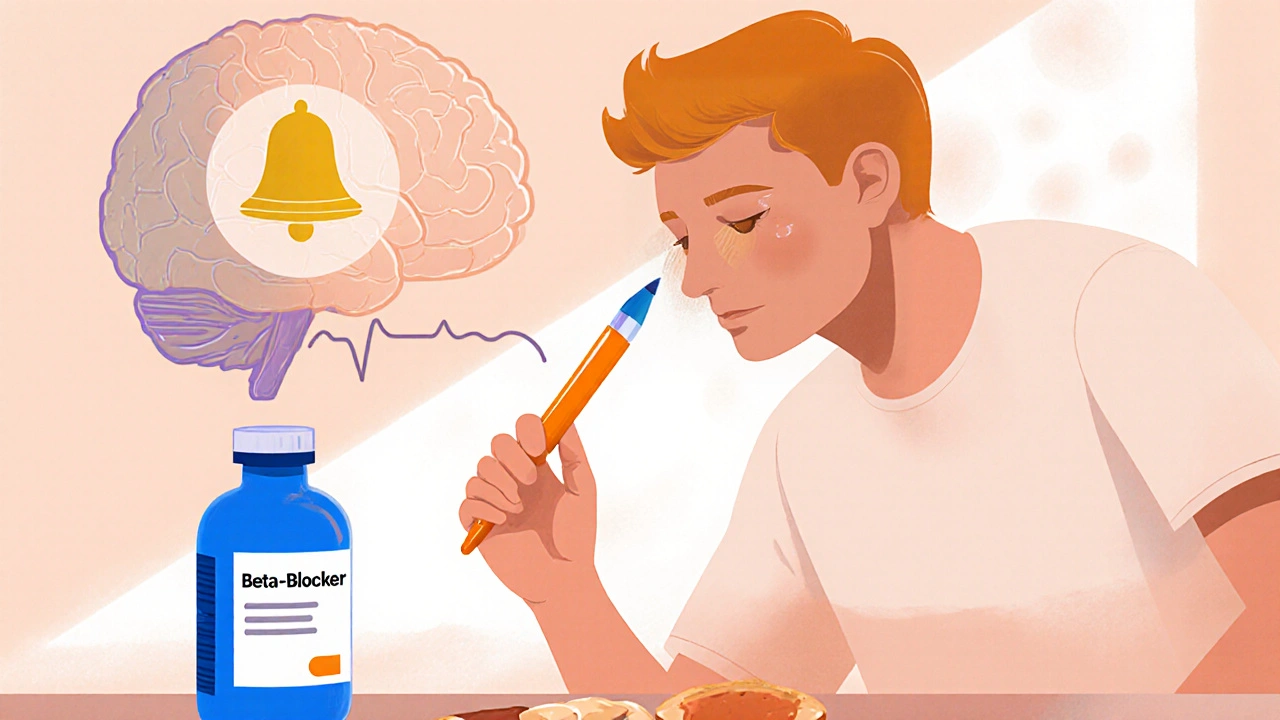Learn how insulin and beta‑blockers interact, why they hide hypoglycemia signs, and what steps keep you safe-guidelines, monitoring tips, and drug choices.
Beta-Blocker Hypoglycemia Risk: What You Need to Know
When you take a beta-blocker, a class of medications used to lower blood pressure, reduce heart rate, or manage anxiety. Also known as beta-adrenergic blocking agents, they work by blocking adrenaline’s effects on your heart and blood vessels. But if you have diabetes, there’s a hidden danger: beta-blocker hypoglycemia risk, the chance that these drugs mask the warning signs of low blood sugar. It’s not that beta-blockers cause low blood sugar—they don’t. But they hide the symptoms that tell you it’s happening.
This matters because when your blood sugar drops, your body normally sends out signals: shakiness, sweating, fast heartbeat, hunger. But beta-blockers like propranolol, a common beta-blocker often prescribed for high blood pressure or migraine prevention block those physical cues. Your heart doesn’t race. Your hands don’t tremble. You might only feel tired, dizzy, or confused—symptoms that are easy to ignore or blame on something else. That’s dangerous. A person with undetected hypoglycemia can slip into seizures or lose consciousness before realizing what’s wrong.
Not all beta-blockers carry the same risk. Some, like metoprolol, a selective beta-blocker that mainly targets the heart, are less likely to interfere with hypoglycemia signals than older ones like propranolol. But even then, the risk isn’t zero. People with type 1 diabetes are especially vulnerable, but type 2 users on insulin or certain oral meds are also at risk. The problem gets worse if you skip meals, exercise more than usual, or drink alcohol while on these drugs.
What can you do? First, check your blood sugar more often—especially before driving, exercising, or sleeping. Keep fast-acting carbs like glucose tablets handy. Tell your doctor if you’ve had unexplained dizziness or confusion. They might switch you to a different blood pressure med or adjust your diabetes treatment. And never stop a beta-blocker cold turkey—it can trigger dangerous heart issues.
This collection of articles doesn’t just explain the risk. It shows you how real people manage it, compares beta-blockers side by side, and breaks down which diabetes meds play well—or clash—with them. You’ll find practical guides on spotting hidden low blood sugar, choosing safer alternatives, and talking to your doctor without sounding alarmist. Whether you’re on propranolol, metoprolol, or considering a switch, the info here is built for daily use—not theory.

